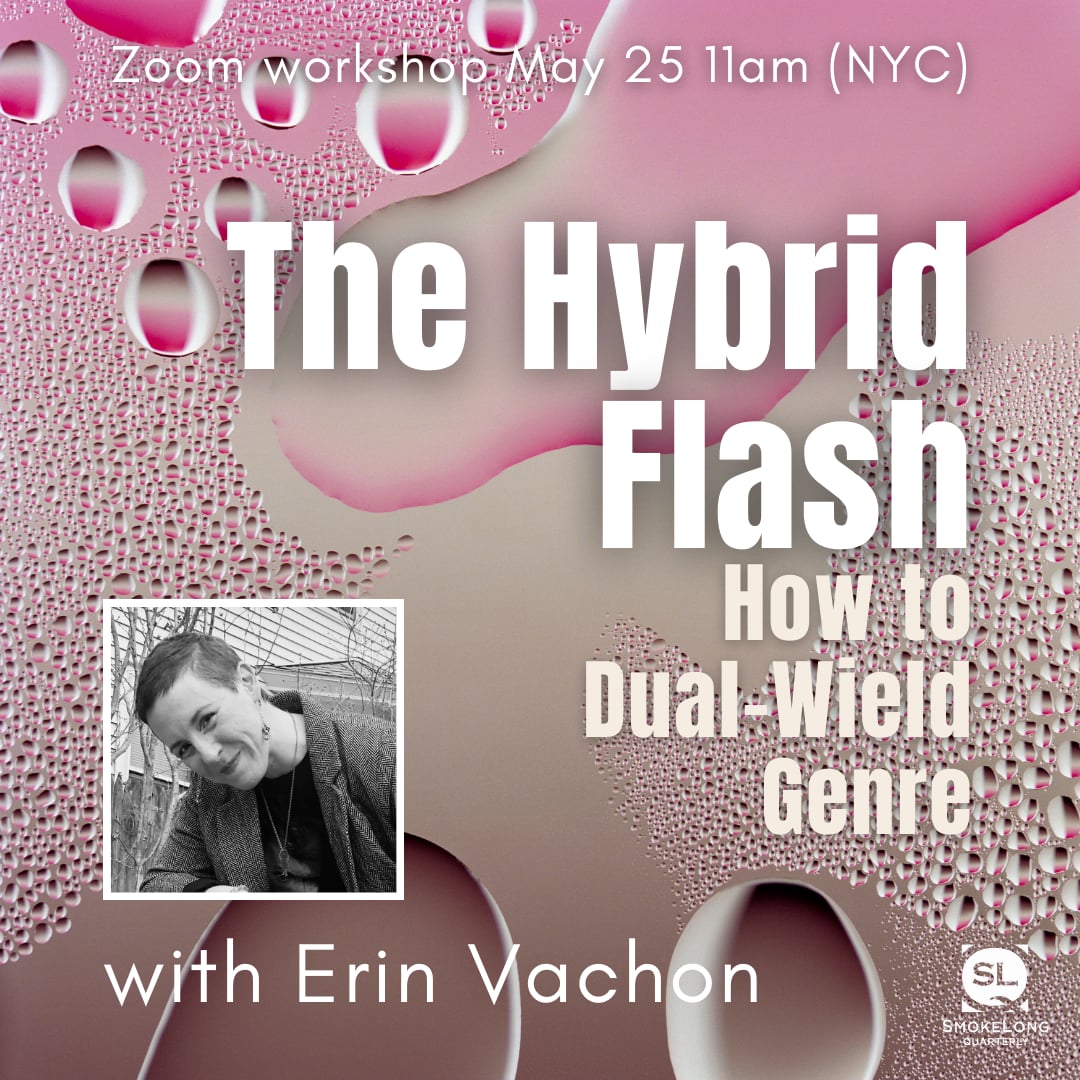I love the soft sci-fi backdrop of your story! I love sci-fi in general, but this piece moves beyond the boundaries of that genre, wonderfully combining humor, grief, love, and hope, resonating deeply in the reader’s belly. What’s your process in developing this fine-tuned balance between gentle genre elements and literary fiction?
I love science fiction; it makes up so much of what I read, watch, and listen to. The best science fiction does conjure all those emotions you list; I would say those are very much within the boundaries of the genre!
Personally, I get a lot of joy (and surprise) from an outlandish premise. I enjoy exploring the emotional landscape of worlds that aren’t quite our own (though they might be familiar).
I try to help the reader find their footing quickly by naming the strange thing from the outset, to show the reader the world they are entering into. Show them the rules of the game so they can jump in and play. Even in my more realistic fiction, I lean on this strategy of world-building, because all worlds are built worlds.
The title “Jubilee” is masterful. How do you discover your titles?
Thank you! I knew I wanted the name of a real cruise ship. The word “cruise” never appears in the story, but that setting grounds the story.
I researched the names of real Carnival ships. They have some fantastic ones: Horizon, Luminosa, Elation, and Valor were all ones I considered. But when I found Jubilee listed, I felt a little zing. It felt too good to be true.
I checked EtymOnline to make sure I really understood the connotation of the word “jubilee” and its history. I knew it meant joy and celebration, and it felt old-timey to me. I feared it might have racist or otherwise harmful undertones. In fact, I learned, it is quite the opposite. According to EtymOnline, the origin is Biblical, and “the original jubilee was a year of emancipation of slaves and restoration of lands.” The connotation of newness, reinvention, and restoration felt like they fit well and deepened the story.
In your story, the ending is the beginning too, beautifully holding hands with the title. Considering I’d also love to devour the novel version of this flash fiction piece, how do you find out when and where to end a story?
I wish I knew! I rely heavily on my incredible writing group, Tierney Oberhammer and Corinne Cordasco-Pak, to help me think through the doneness of a piece and when an ending is working (or not).
I will say that, in flash, I tend to find the story’s ending beat early on, and then my challenge is figuring out how to get there as swiftly as possible. I ask myself: What are the stepping stones, the “minimum viable story” to make that ending really land?
This story is about the narrator falling in love, and beginning to believe they are worthy of love, after something horrific. “Jubilee” benefits from a container—the “action” all takes place on a single night, with some flashbacks to different points in time. Though there are big epic elements, like an alien attack and resistance effort, those are left unresolved—they are the backdrop to this personal awakening.
Your story mentions attacks, invasion, and the apocalypse. But even the “mothership” has a potential vulnerability, “like the belly of a cat.” And the narrator’s body is also “growing a new heart to break,” showing they are vulnerable, too. And both the mothership and the narrator want to protect their vulnerabilities at all cost. Do you think in protecting our soft spots from the “other,” there’s still a chance for peace?
I don’t know that I—or the story—have an answer. I’m going to punt on the important question of whether peace is possible and what it takes.
Yes, vulnerability is at the core of this piece. One key inspiration was the picture book I’ve been reading to my eighteen-month-old daughter: You Are New by Lucy Knisley. At the outset, the narrator talks about how challenging the world is for infants: “It’s tough when everything is new.” The babies then turn into toddlers, becoming more confident as they get bigger.
Then, in a line that always makes me cry, Knisley / the narrator explains that newness doesn’t go away when you grow up; there is always more to learn and try and become:
“But wait! You will be new again.”
And later:
“When you love, and you’re loved, too … just like that, you are new.”
That’s the journey the narrator of this story goes on, lifted from Knisley’s book. After hardship, she has to completely reinvent herself, become new again, and open up to love.
For me, when the world feels hard, violent, oppressive, and cruel, I need this reminder that we can be new again, if we are willing to be fumbling and get hurt in the process. That to reinvent the world we need to reinvent ourselves, and our idea of success, what matters, what counts as safety and who gets it. There’s a reason I write stories rather than essays: I find these big ideas hard to think about cogently.
For my day job I was just at a conference about “change education” and one of the speakers was talking about how change can be hard because you can both be angry at traffic—the harmful systems—while simultaneously realizing that you are part of the traffic, contributing to traffic, adding to the problem. Both can be true, and that can be paralyzing.
Writing fiction gives me a way to, just for a moment, step out of the traffic, and imagine things otherwise.
Star Trek or Star Wars? Neither? Both?
Both! But only Star Wars has mythical status for me; I was raised on the original trilogy and the extended universe books. I’d love to someday write a book set in that universe.



